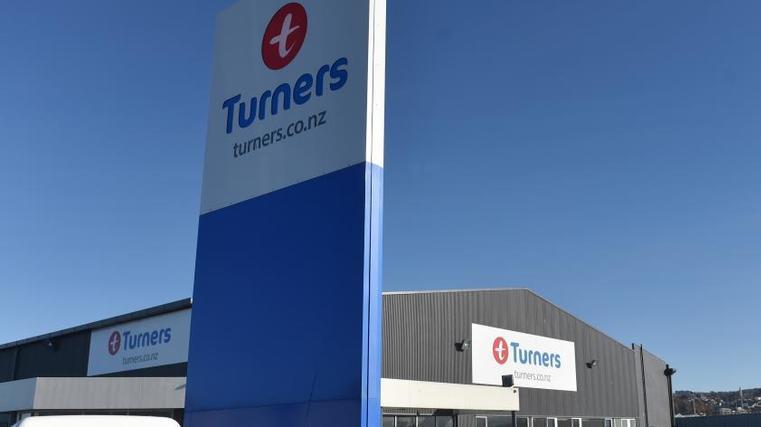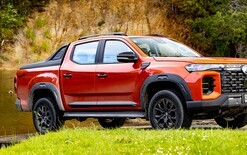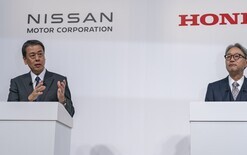Turners profits top $29m

Company chairman Grant Baker says the focus has been on organic growth and generating synergistic benefits across the group. “We are seeing benefits from the company’s expanding retail network, a focus on better quality loans and simplification of the business model into core brands.”
Total revenue for the year grew to $336.6m, up by two per cent from $330.5m compared to the year before, with automotive retail contributing 67 per cent of operating revenue.
Chief executive officer Todd Hunter says Turners is continuing to invest in expanding and developing its automotive retail network. It currently has 33 sites across New Zealand.
“We are starting to see positive gains from the ongoing optimisation of our network, which has included the relocation of the Whangarei site, and addition of two new sites in Wellington and New Plymouth that are both performing above expectations,” he says.
A proportion of reserves from Turners’ insurance business has been allocated to support the retail expansion and assist in better utilisation of capital in the business.
A new North Shore branch is expected to open towards the end of the second quarter in 2020 after the previous site was compulsorily acquired by NZTA, and there are plans to open a further seven sites, for which two already have contracts already in place.
Market conditions
New Zealand’s used car market remains at strong historic levels. The market headwinds noted in the first half of the financial year have eased, and an improvement in trading performance and vehicle margins was noted in quarter four.
Demand in the Auckland market remains soft and pressure on used vehicle import margins.
A current oversupply of import cars is temporarily pushing down pricing and increased compliance costs are also having an adverse impact.
Conversely, local stock is delivering much stronger margins and Turners is benefitting from its strategy to increase the number of “owned” vehicles it sells, which provide higher margins.
Automotive retail
Automotive retail was the largest contributor to the group, generating 67 per cent of operating revenue and 63 per cent of operating profit. Revenue was slightly up on the prior year to $225.7m, with operating profit increasing 10 per cent to $18.3m.
Turner’s Group is benefitting from its national network and strong online channels, which provide diversity across regional markets. The business delivered a 13 per cent increase in operating profit, offsetting the downturn in Buy Right Cars, which has been adversely impacted by the soft Auckland market where all but one of its sites are located.
Turners’ single-brand strategy is now in force with the rebrand of Buy Right Cars to Turners completed in May 2019. This provides the opportunity to further leverage high levels of awareness and will enable marketing and other cost synergies to be achieved.
Approximately 49 per cent of retail sales are cars owned by Turners, which generate better margins and an increased opportunity to cross sell finance and insurance products.
Of the vehicles being sold on consignment, a higher number of these are ex-lease cars which provide less margin but provide good late-model NZ-new cars for sale.
While import vehicle margins are well down, Turners has implemented a number of initiatives to improve local stock buying, which delivers higher margins.
Turners has also continued to grow its share of the niche end-of-life market and is increasingly being recognised by insurance companies as the provider of choice.
Finance division
The finance division delivered an 11 per cent increase in operating revenue to $44.2m. However, operating profit decreased slightly to $11.1m due to increased impairment from a change in accounting standards and Motor Trade Finance (MTF) non-recourse offering.
Good progress is being made on repositioning the borrower profile towards high-quality and more-profitable lending aided by the introduction of comprehensive credit scoring in March 2019.
From August 2018, all new loans originated by Turners Cars are being directed into Oxford Finance, and the Turners Finance loan book with MTF will run down over the next two years. New loans originated by Turners Cars added $28m to the Oxford Finance loan book in full-year 2019.
Baker advises the board has appointed FNZC to conduct a strategic review of Oxford Finance, which has already commenced.
“While Oxford Finance is a well-performing and growing business with a strong network of active dealers across the country, the review of group strategy has highlighted that building a loan book is capital intensive and we may be best to use our capital in growing our core business.”
The number of active dealers selling Turners’ finance offer continues to grow and was up 11 per cent year on year. One-in-five loans is now being “auto-approved” through Turners’ Auto App online loan approval platform, which makes it easier and faster for dealers and customers to gain response on loan applications.
Outlook
Automotive retail has been identified as Turners’ core strength. The long-term dynamics of this market are strong with hundreds of thousands of ageing vehicles needing to be replaced over the next decade. Turners is well-positioned to take advantage of this, as well as the expected consolidation of the dealer network.
Management has identified a number of growth opportunities across all businesses, which take advantage of the changing dynamics of the industry – digital disruption, increased regulation, increasing shift to online channels, alternative ownership models and industry consolidation.
Dividend
The board has declared a final quarter fully imputed dividend of five cents per share, taking full-year dividends to 17c per share, up from 15.5c in full-year 2018. Following the strategy work, the directors have enhanced the dividend policy resulting in a new pay-out ratio of 60-70 per cent of NPAT – up from 50-60 per cent.





